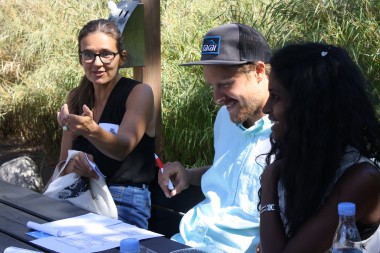In practice-oriented innovation and entrepreneurship courses a big part of the teaching is centered around group work. In order to ensure the quality of the overall course process and especially the students’ project work providing the best preconditions for the group work is therefore crucial. When the group work doesn’t function optimally:
- The solutions are typically dealt with incompletely and cannot be explained in depth.
- The students’ processes are ineffective, which affects decisions, learning outcomes and basis for development.
- Furthermore, the common group work provides inadequate outcome for each of the individual students.
The conclusion is that a lack of ownership and a weak sense of responsibility cause too much work for a minority (and in certain cases the wrong individuals) and too little learning for the majority (von Stamm, 2008). All students bring a history of good and bad experiences and some fundamental assumptions about how group work should be approached. This means that the group members have different working methods, motivations, ambitions and success criteria, which will affect their collaboration.
The better options a group has of finding a common ground and getting to know each other, the better chances the group has of handling potential professional and personal conflicts during the process. In the beginning of a process/a course group members tend to be very friendly and forthcoming. A well-functioning group is in everyone’s interest, as is finding one’s place in a group where both approval and confirmation are received from each other. The group changes over time and group exercises at an early stage may help to provide a common basis in which both professional and social dynamics emerge. These dynamics are verbalized and thus stay as useful group experience.


